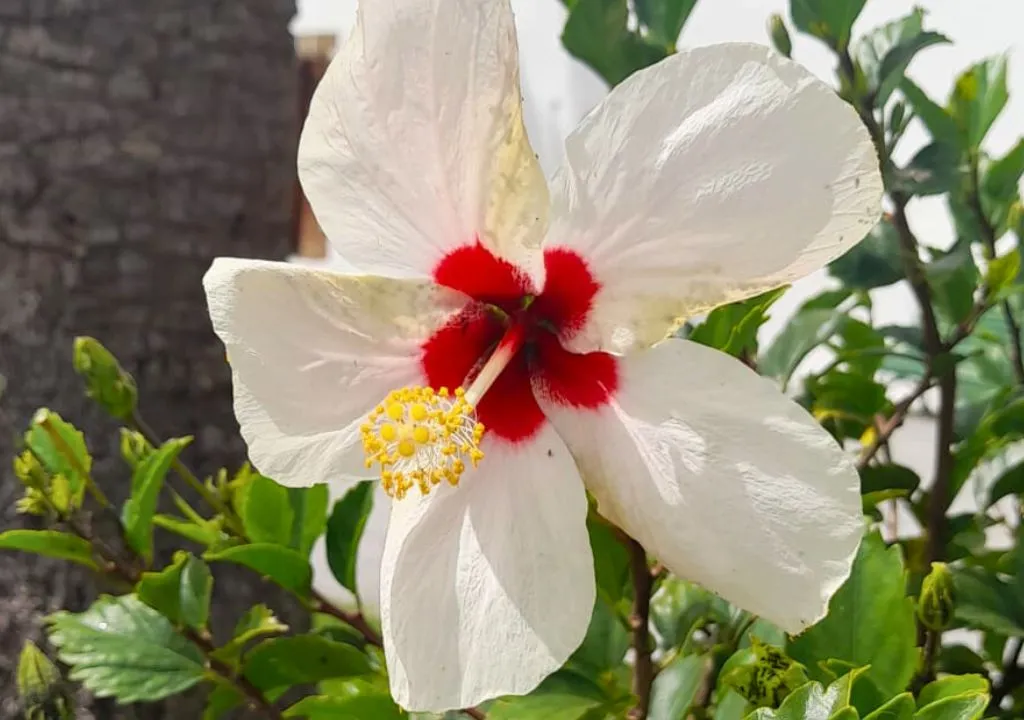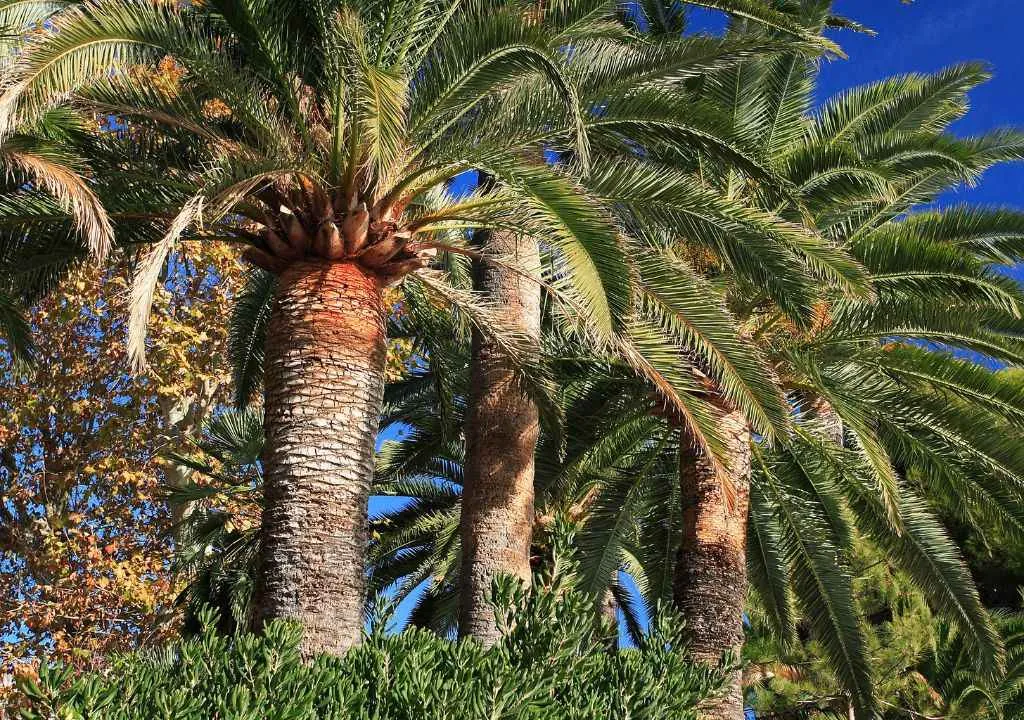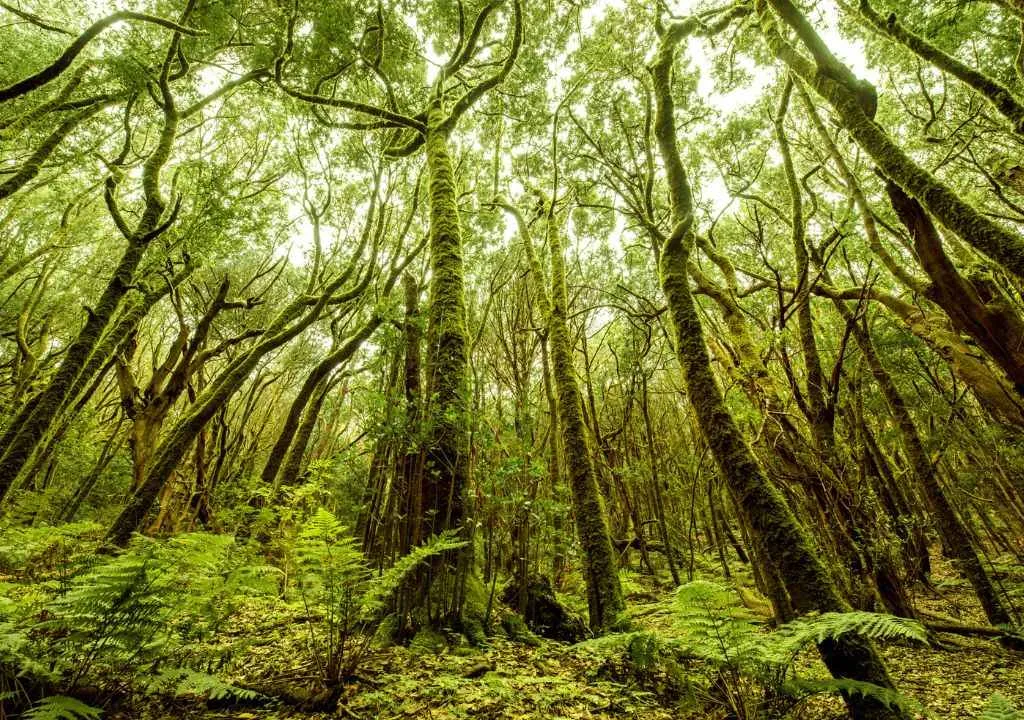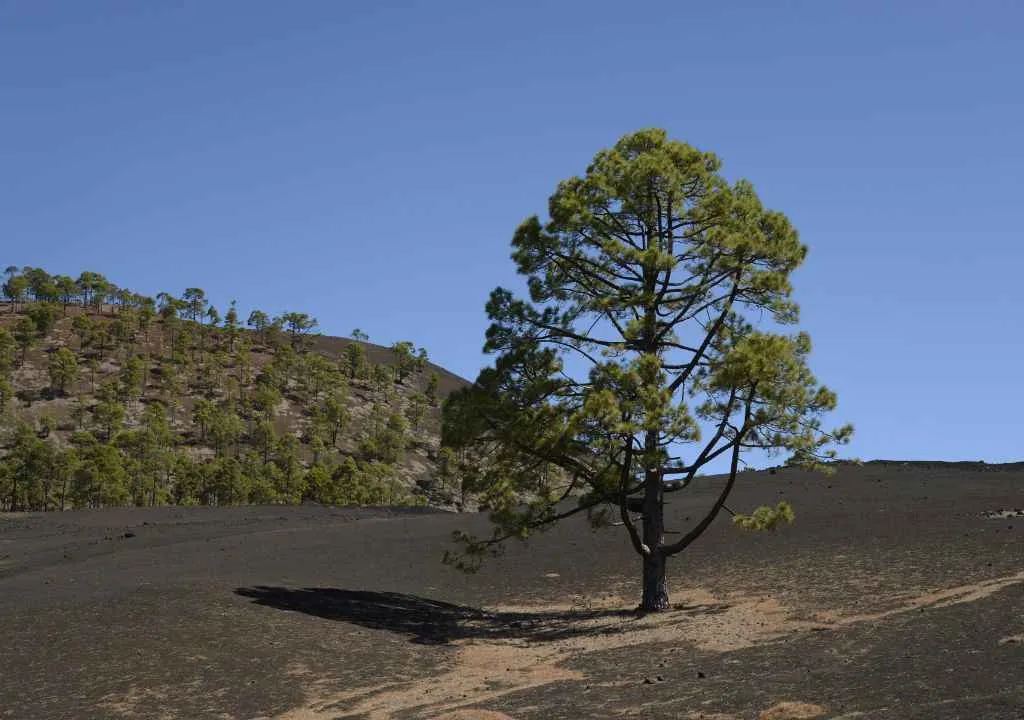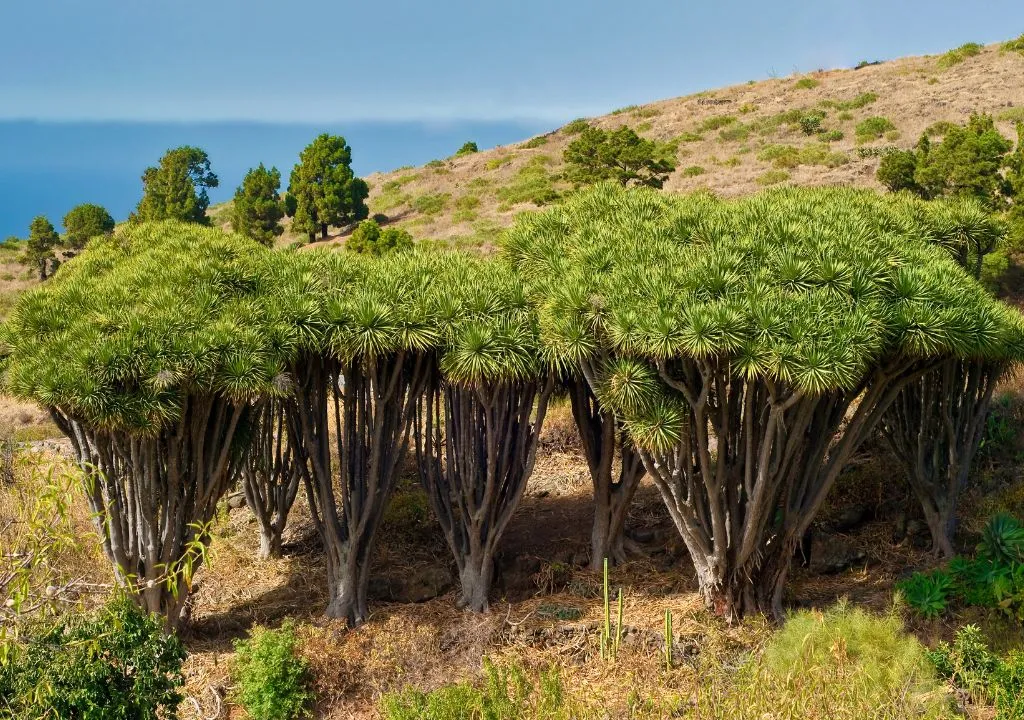Spring in La Palma is a true spectacle of nature.
Paths, mountains, and ravines burst into color as flowers paint the island with life and fragrance.
Every bloom reflects the diversity and energy of this volcanic land, where nature thrives with pure vitality.
Walking through La Palma in spring is a sensory experience.
Shades of yellow, violet, and red blend with the deep green of the forests.
Here, life blooms with an intensity that touches every corner of the island.
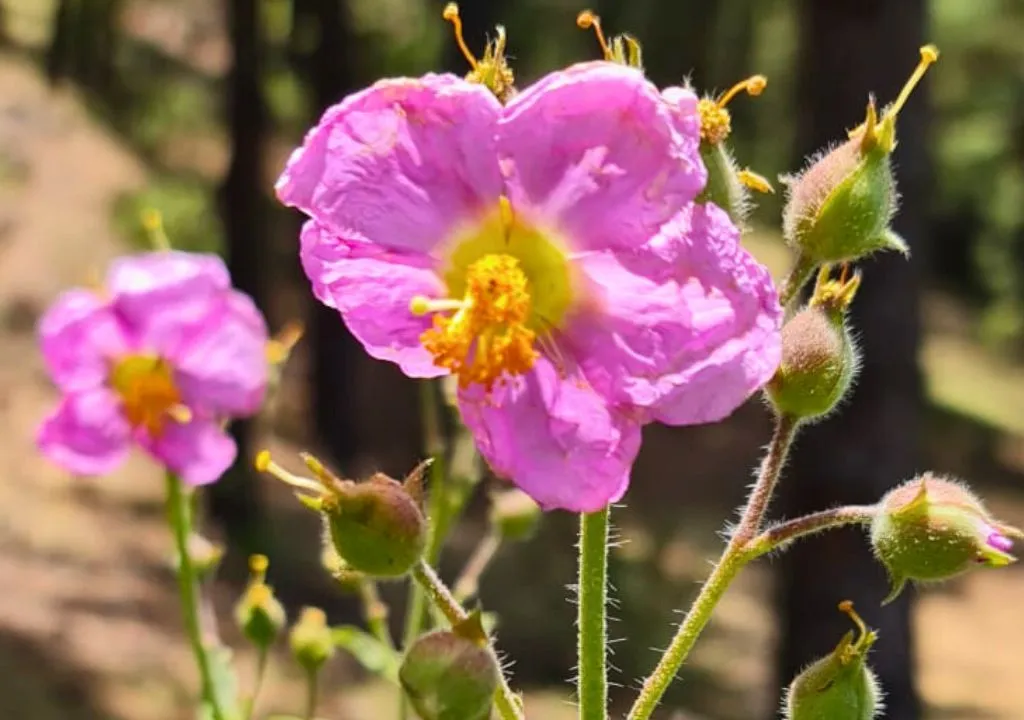
Native and Endemic Flowers of La Palma
These flowers were born from the island’s volcanic soil and shaped by its climate, altitude, and rugged terrain.
Many species grow only here, or on a few nearby islands, making them true natural treasures.
Retamón or Mountain Broom (Genista canariensis)
- Description: A bright yellow shrub that perfumes the highlands with its sweet aroma.
- Blooming season: May to July.
- Where to see it: Cumbre Vieja, Cumbre Nueva, and around Roque de Los Muchachos.
- Fact: It helps protect the volcanic soil from erosion.
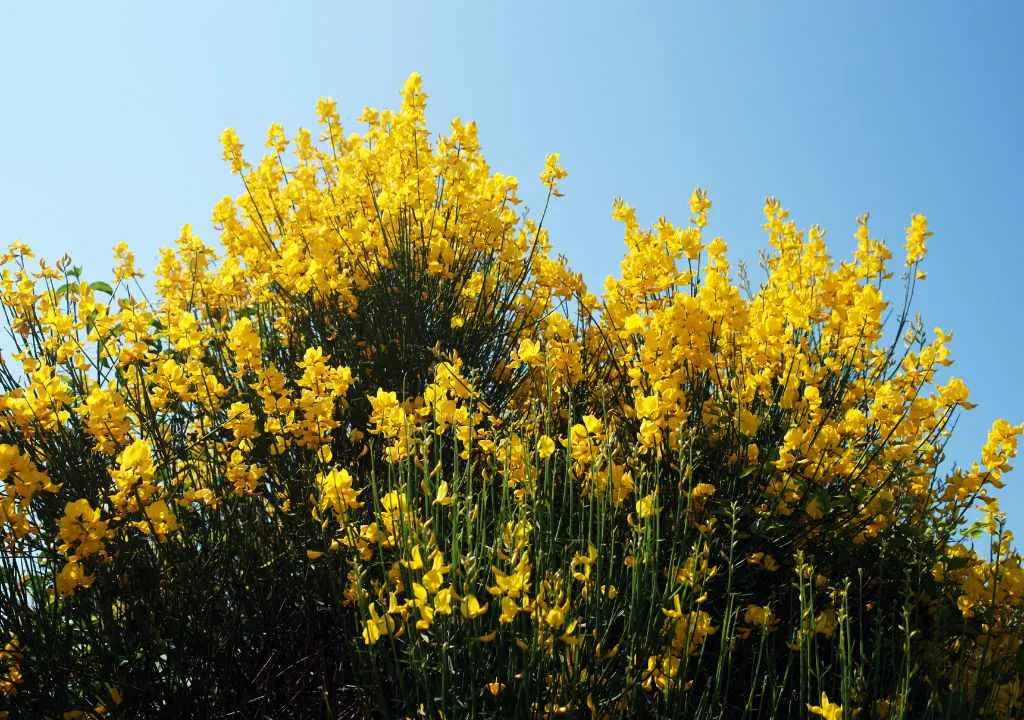
Tajinaste of La Palma (Echium gentianoides)
- Description: Endemic shrub with blue or violet flower spikes, one of the island’s floral symbols.
- Blooming season: April to June.
- Where to see it: El Paso, La Caldera de Taburiente trails, and Los Andenes.
- Fact: Its nectar produces a highly prized local honey.
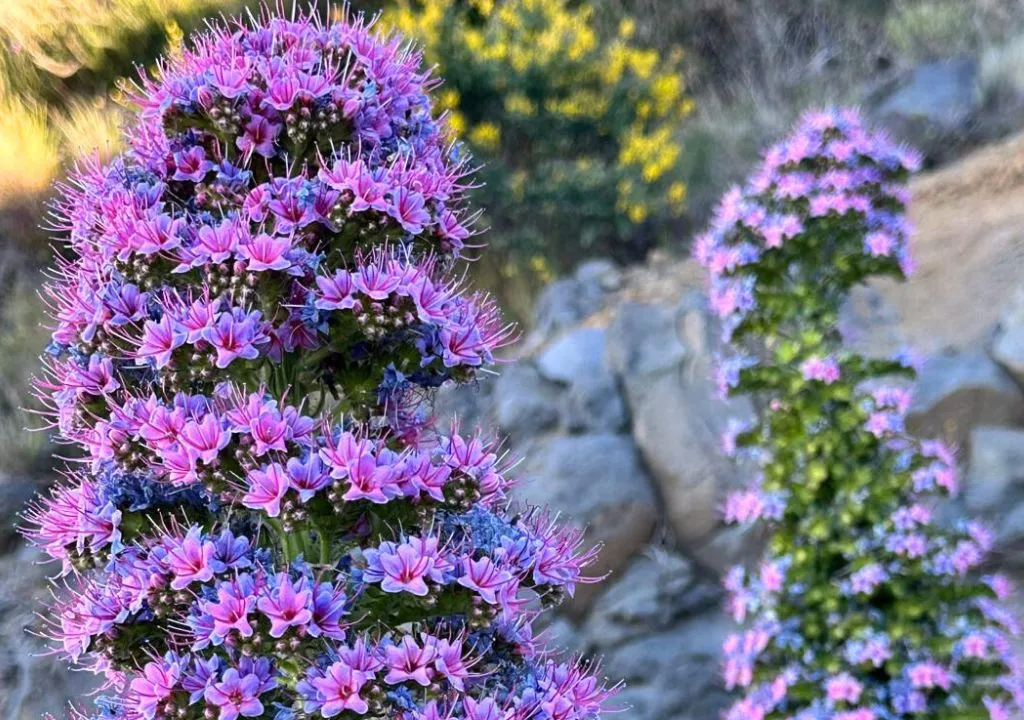
Violet of the Summit (Viola palmensis)
- Description: Tiny violet flower growing among the island’s highest rocks, rare and protected.
- Blooming season: March to May.
- Where to see it: Rocky slopes near Roque de Los Muchachos and Garafía peaks.
- Fact: It blooms only under specific humidity and altitude conditions.
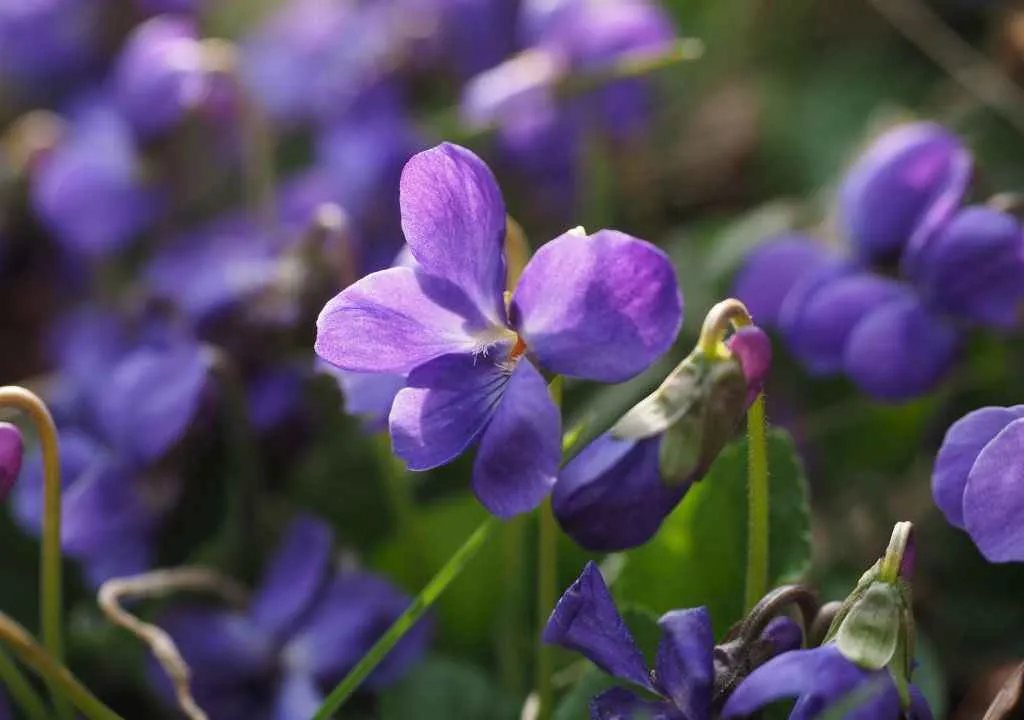
Codeso (Adenocarpus foliolosus)
- Description: Endemic shrub with clusters of yellow flowers that brighten mountain roads.
- Blooming season: April to July.
- Where to see it: Cumbre Nueva and the road to Roque de Los Muchachos.
- Fact: Its flowering marks the beginning of summer in La Palma.
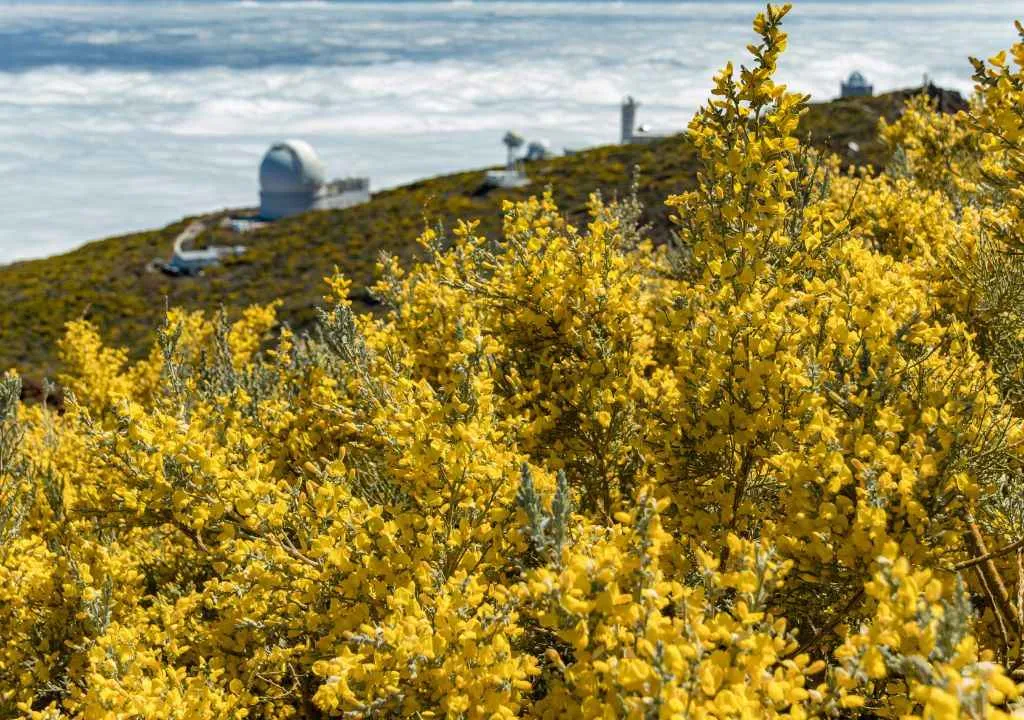
Amagante (Cistus symphytifolius)
- Description: Wild shrub with pink or white flowers, typical of the mid-altitude forest.
- Blooming season: March to June.
- Where to see it: Breña Alta, Puntallana, and El Paso.
- Fact: Its delicate petals resist sun and wind with surprising strength.

Mountain Gacia (Tenile stenopetala)
- Description: Small legume with white or yellow flowers that carpet the island’s summits in spring.
- Blooming season: March to June.
- Where to see it: Between 1000 and 2400 m in Caldera de Taburiente, La Cumbrecita, Barranco de Las Angustias, and Pico de Las Nieves.
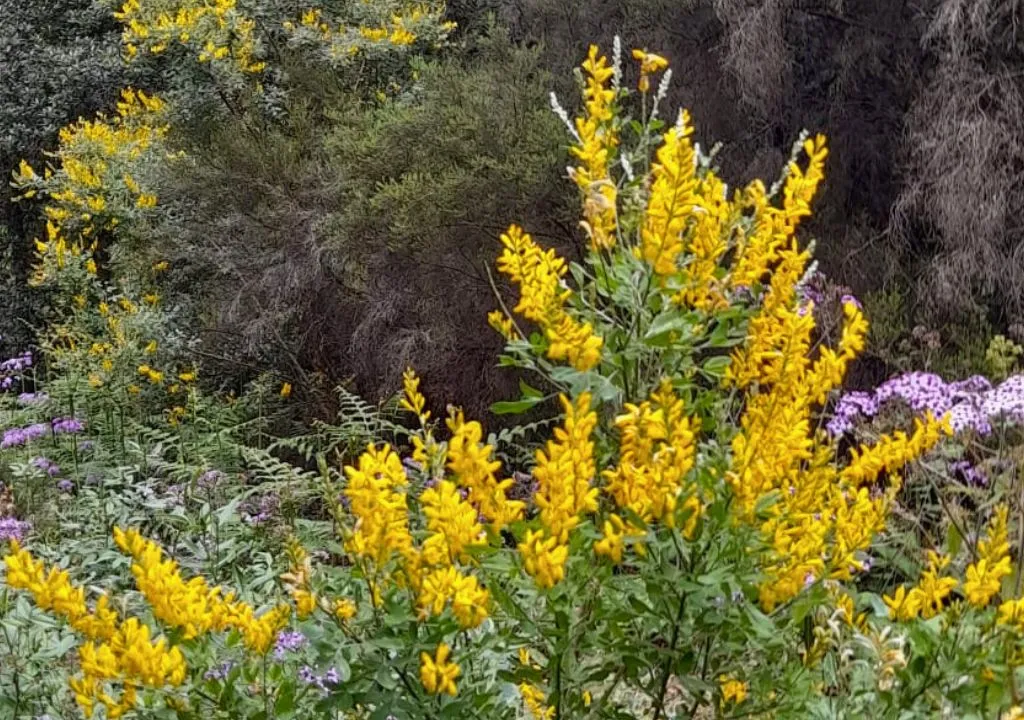
May Flower (Pericallis cruenta)
- Description: Endemic plant with bright violet flowers that light up the island’s humid forests.
- Blooming season: February to June.
- Where to see it: Moist, shaded areas of the laurel forest.
- Fact: Its name comes from its abundant bloom in May.
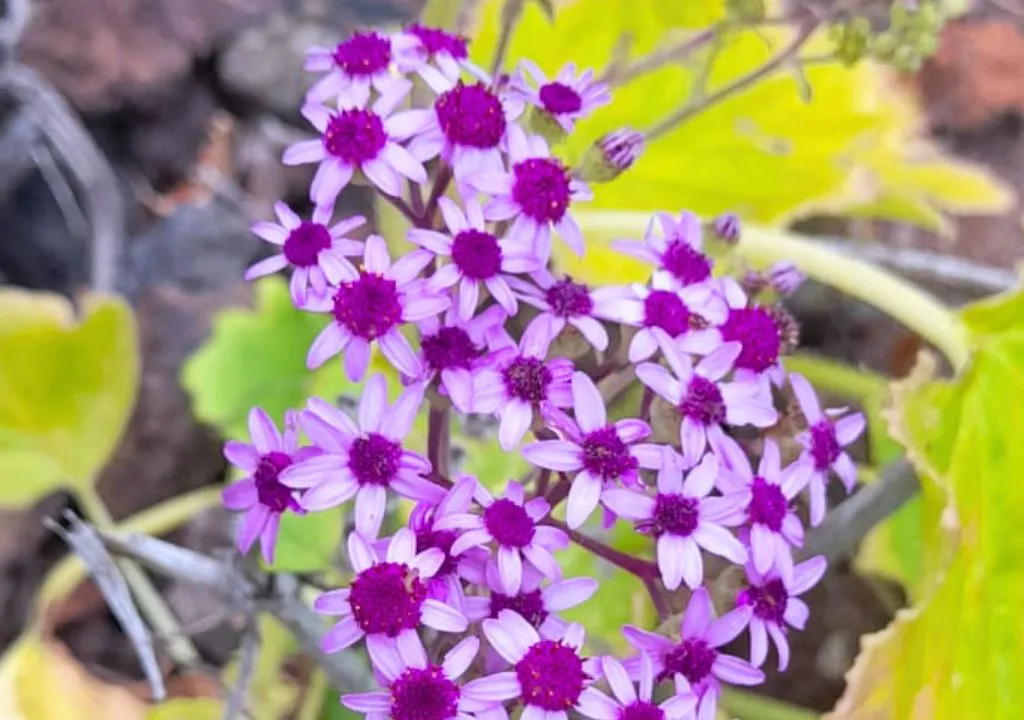
Fire Peak (Lotus phyranthus)
- Description: Endemic legume with fiery yellow-orange flowers.
- Blooming season: March to May.
- Where to see it: Pine forests between 1300 and 1500 meters of altitude.
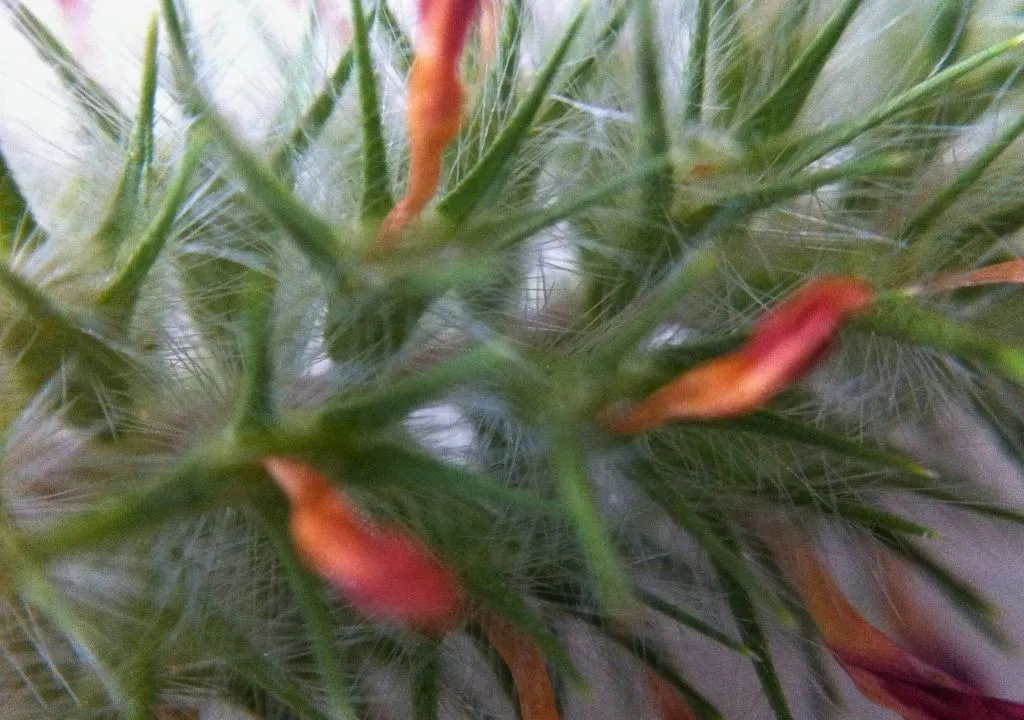
Naturalized Flowers of La Palma
Some flowers did not originate here but found their perfect home on La Palma.
They arrived through trade or travel and adapted beautifully to the island’s mild climate, adding color to gardens, squares, and roadsides.
Poinsettia (Euphorbia pulcherrima)
- Description: Ornamental shrub with red and green leaves, originally from Mexico.
- Blooming season: November to April.
- Where to see it: Gardens, squares, and roadsides across the island.
- Fact: In La Palma, it can grow up to three meters tall.
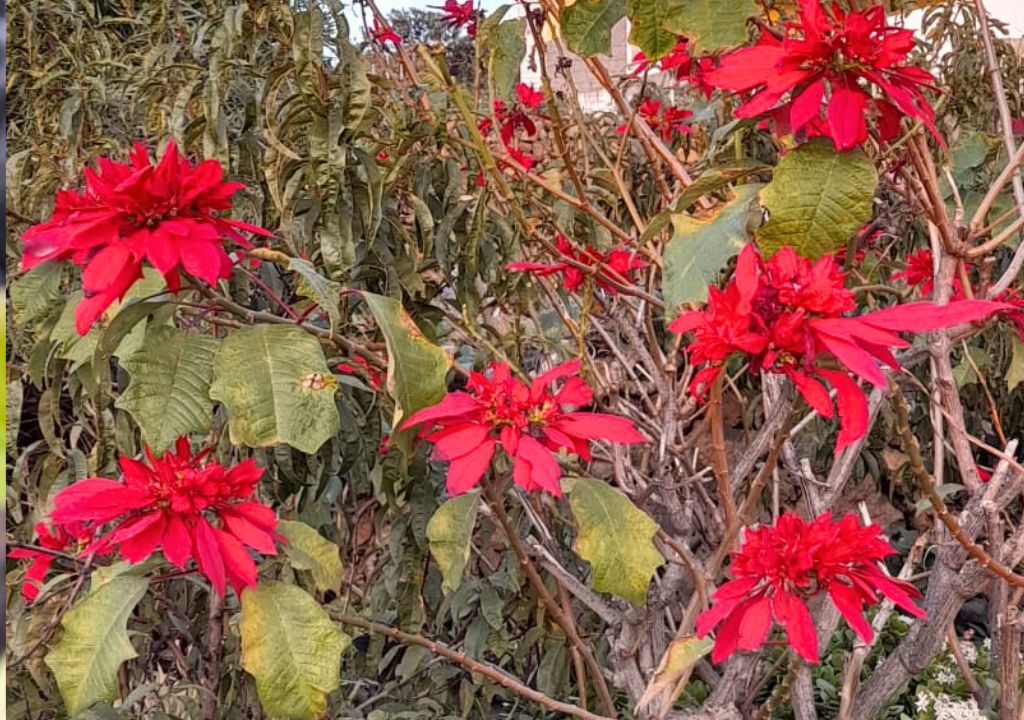
Frangipani (Plumeria rubra)
- Description: Tropical shrub with white, pink, or yellow flowers and a sweet fragrance.
- Blooming season: April to September.
- Where to see it: Coastal and warm midland areas, especially in towns and gardens.
- Fact: Its scent is linked to peace and hospitality.
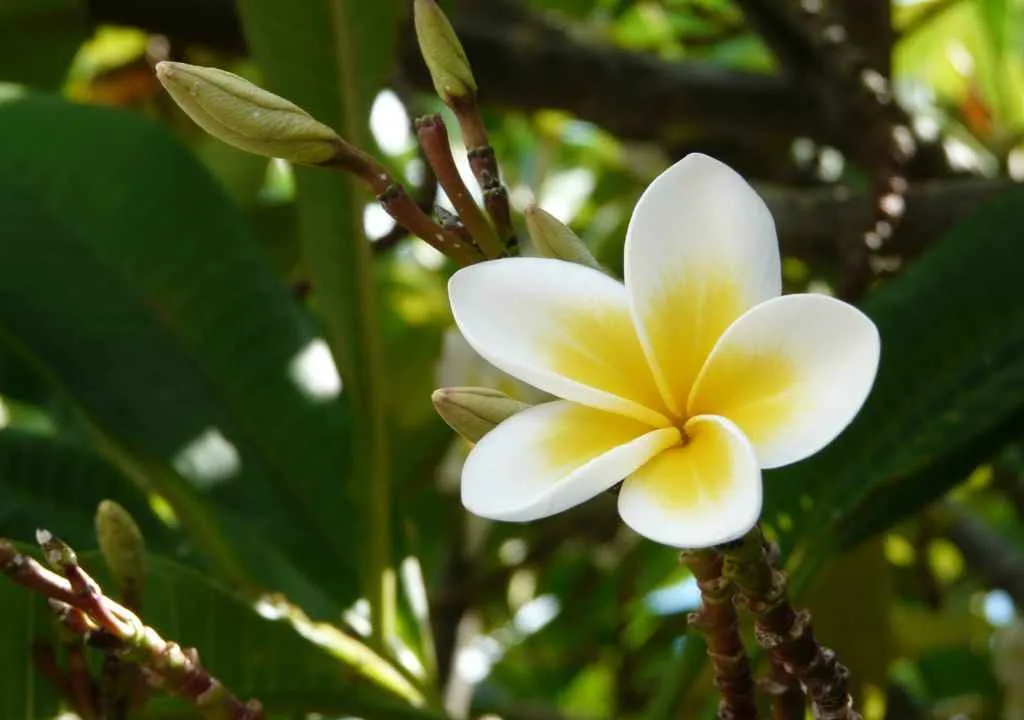
Bougainvillea (Bougainvillea glabra)
- Description: Colorful climbing plant that decorates walls and facades with vibrant hues.
- Blooming season: All year, with a peak in summer.
- Where to see it: Coastal villages and traditional patios.
- Fact: The color comes from modified leaves called bracts, not the petals.
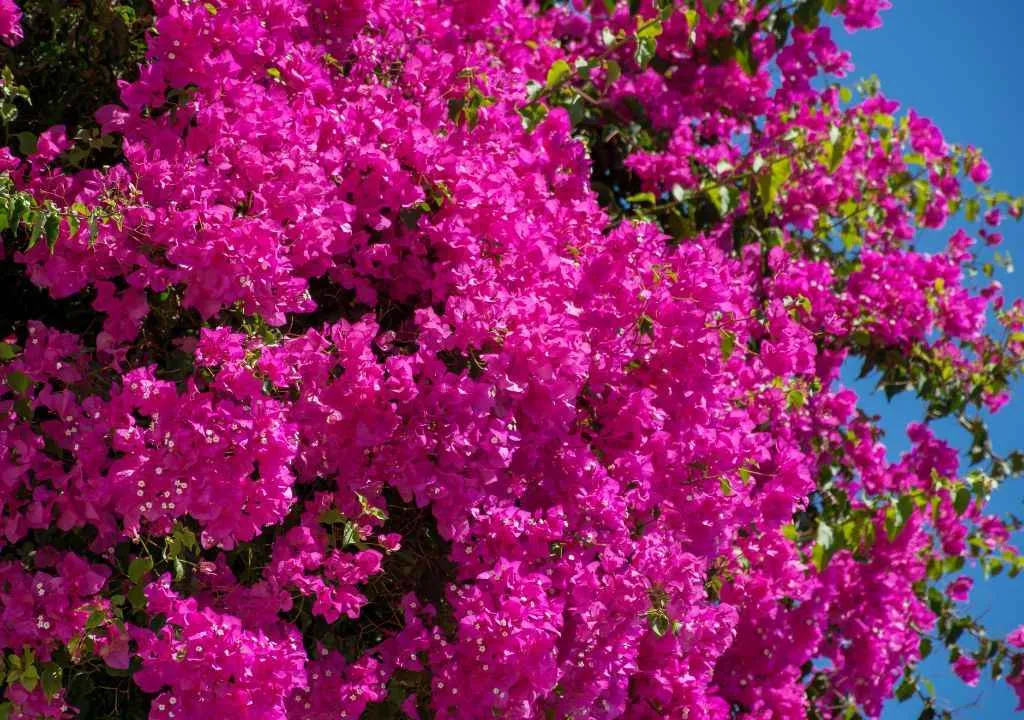
Bird of Paradise (Strelitzia reginae)
- Description: Exotic flower with bright orange and blue tones, symbol of elegance.
- Blooming season: October to May.
- Where to see it: Public gardens, avenues, and hotel landscapes.
- Fact: It is one of the floral icons of the Canary Islands.
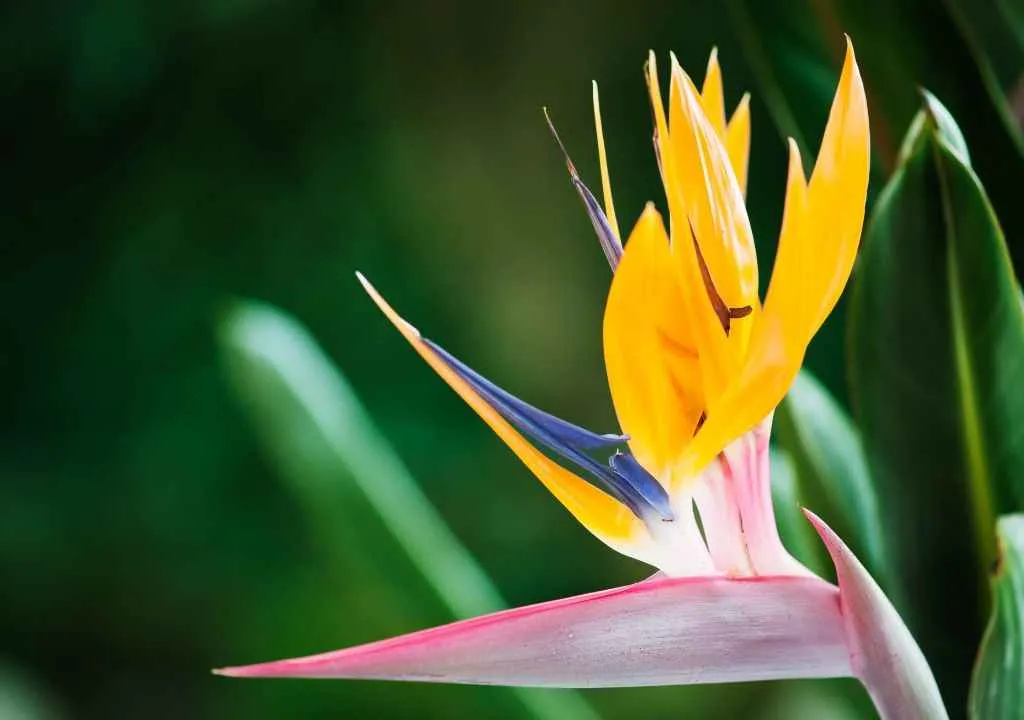
Protea (Protea cynaroides)
- Description: Large, striking flower from South Africa, now cultivated in La Palma.
- Blooming season: February to May.
- Where to see it: Farms in San Andrés y Sauces, Breña Alta, and El Paso.
- Fact: Each plant can produce up to 60 flowers per season and supports the island’s new ornamental industry.
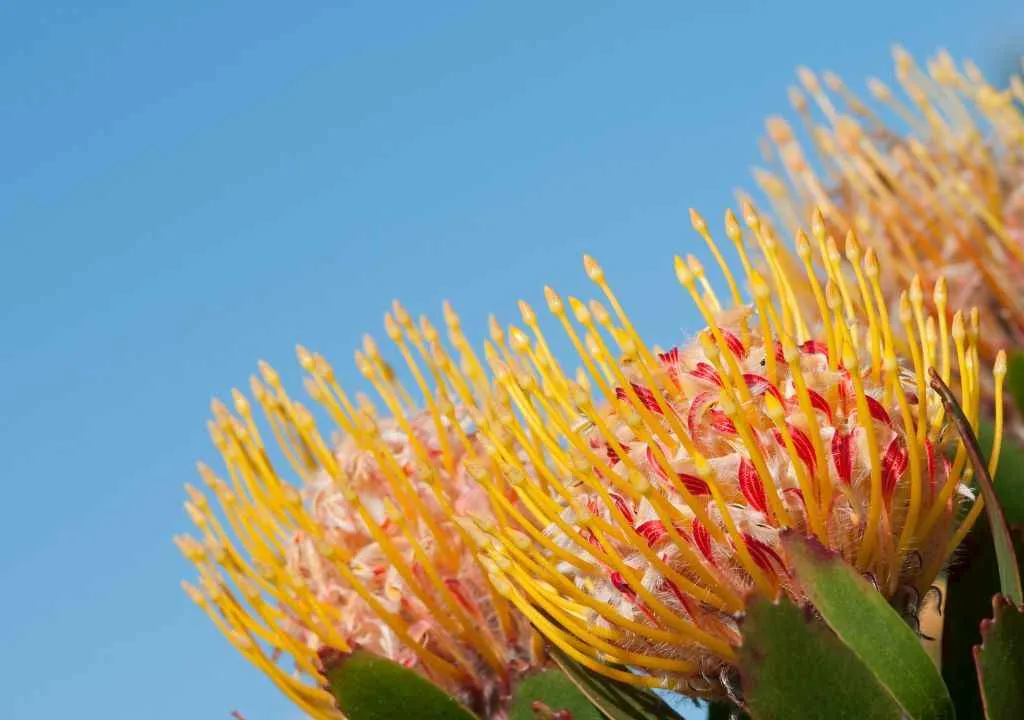
Flamboyant Tree (Delonix regia)
- Description: Ornamental tree with spectacular red or orange flowers that provide shade in summer.
- Blooming season: May to October.
- Where to see it: Plazas and streets of Santa Cruz de La Palma and many other towns.
- Fact: In full bloom, it looks like a blazing fire of petals.
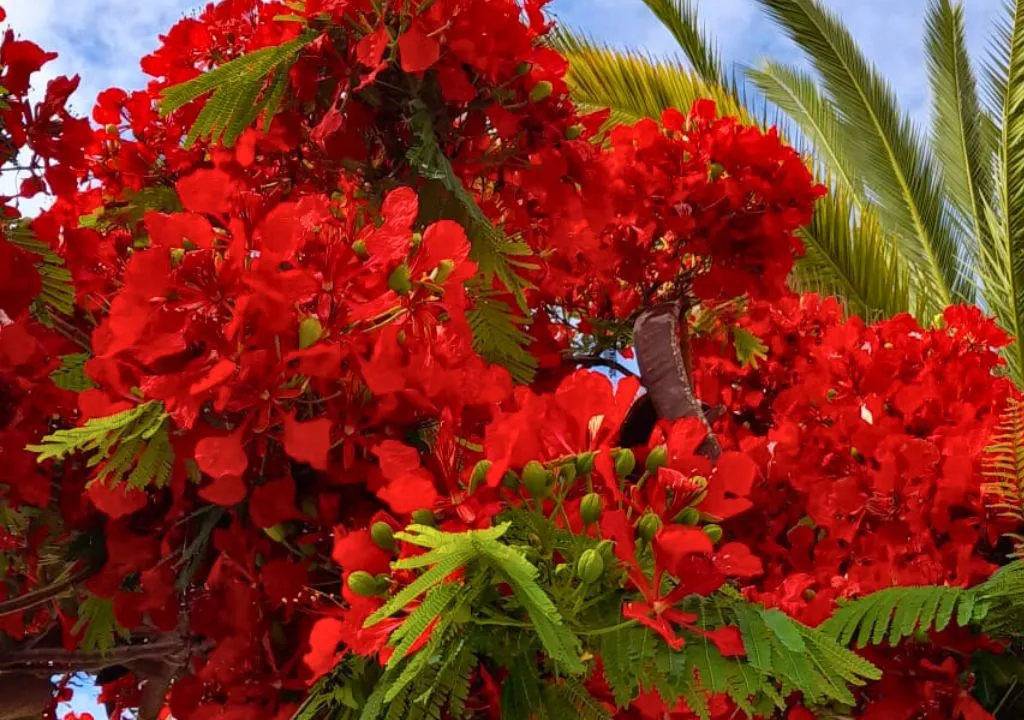
Pink Trumpet Vine (Podranea ricasoliana)
- Description: Climbing plant with bell-shaped pink flowers and a soft evening fragrance.
- Blooming season: Spring to autumn.
- Where to see it: Walls, pergolas, and gardens across the island.
- Fact: Its delicate scent grows stronger at sunset.
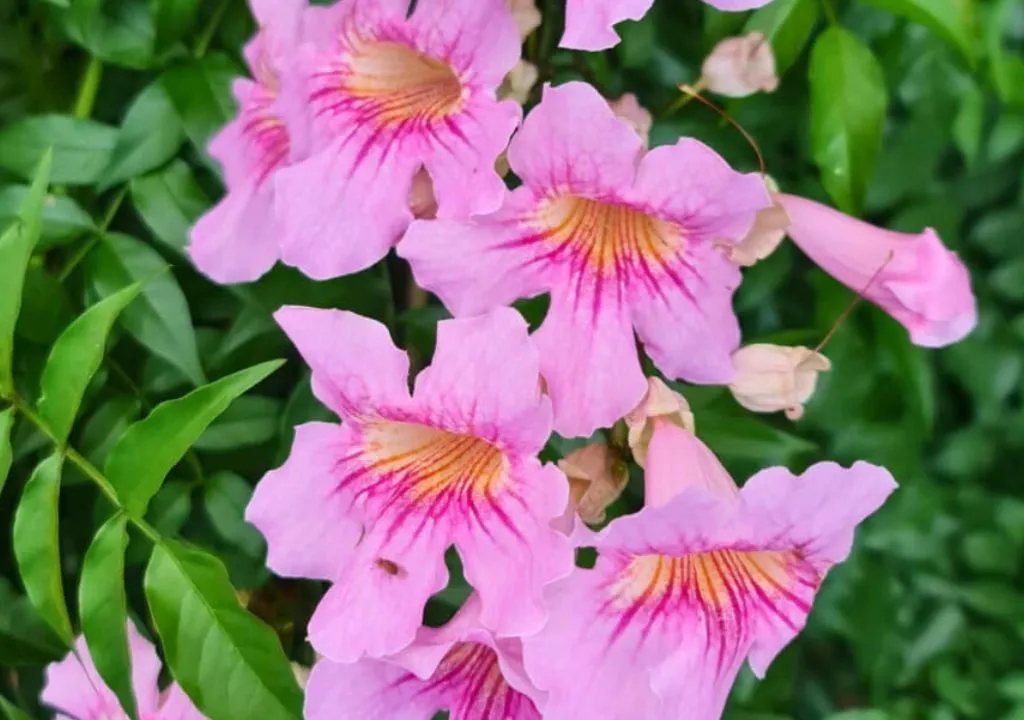
Orchid Tree (Bauhinia variegata)
- Description: Ornamental tree with pink or purple flowers resembling orchids.
- Blooming season: January to May.
- Where to see it: Parks and gardens in coastal and midland areas.
- Fact: A symbol of beauty, renewal, and grace.
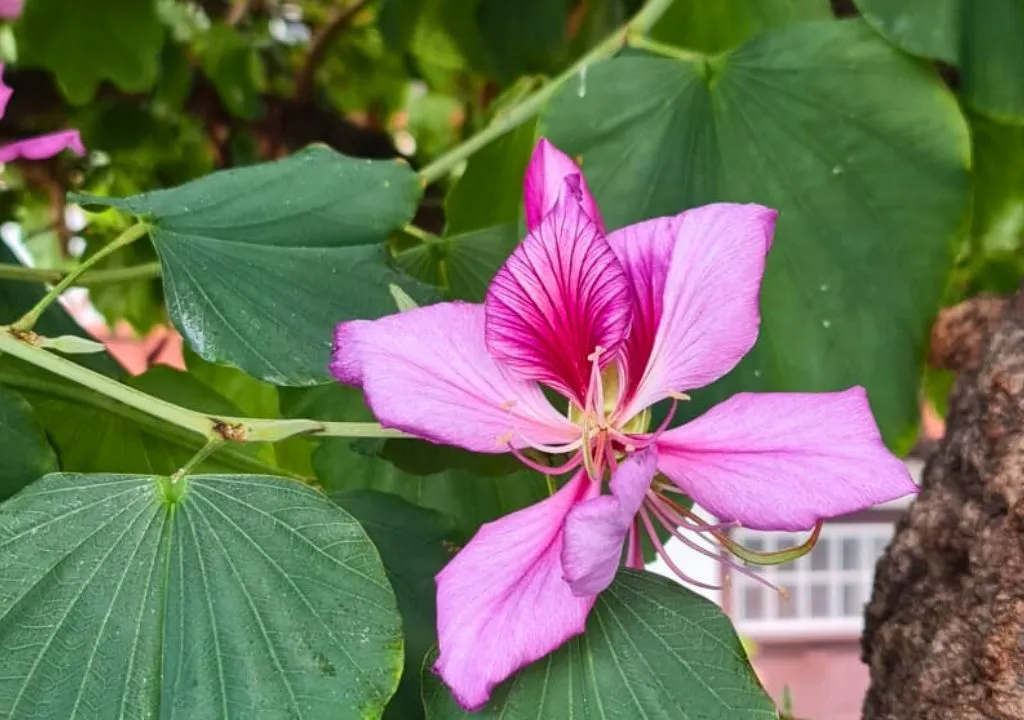
Hibiscus (Hibiscus rosa-sinensis)
- Description: Shrub with large trumpet-shaped flowers in vivid colors.
- Blooming season: Nearly all year, peaking in spring and summer.
- Where to see it: Coastal areas and warm towns like Santa Cruz, Los Cancajos, Los Llanos, and Tazacorte.
- Fact: Each bloom lasts only one day, but the plant flowers continuously, attracting butterflies and pollinators.
